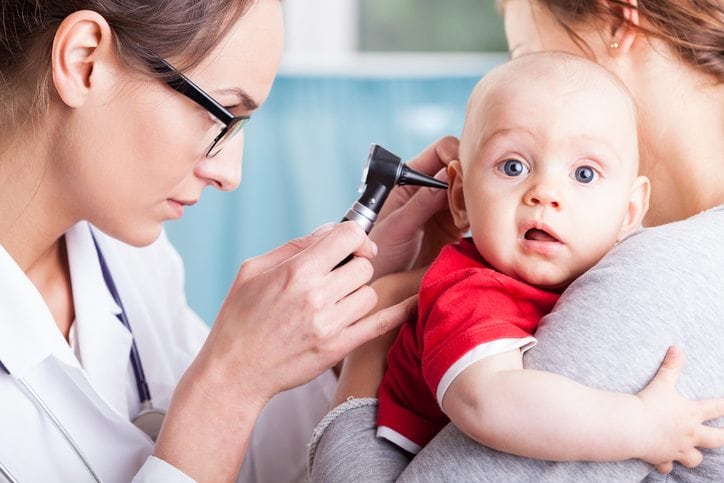“Mommy, my ear hurts.”
These heartbreaking words are just one indicator to parents that a child might need to be seen by a clinician for a possible ear infection.
But according to the National Institutes of Health (NIH), most ear infections happen to children before they’ve learned how to talk.
Then what?
If your child isn’t old enough to say “My ear hurts,” the NIH recommends looking for these physical tells:
- Tugging or pulling at the ear(s).
- Fussiness and crying.
- Trouble sleeping.
- Fever (especially in infants and younger children).
- Fluid draining from the ear.
- Clumsiness or problems with balance.
- Trouble hearing or responding to quiet sounds.
What is an ear infection?
An ear infection is an inflammation of the middle ear, usually caused by bacteria, that occurs when fluid builds up behind the eardrum. Anyone can get an ear infection, but children get them more often than adults. Five out of six children will have at least one ear infection by their third birthday. In fact, ear infections are the most common reason parents bring their child to a doctor. The scientific name for an ear infection is otitis media (OM).
Can ear infections be prevented?
Seeing a child — especially your own child – in pain is something parents wish to avoid. The best way to prevent ear infections is to reduce the risk factors associated with them. Here are some things you might want to do to lower your child’s risk for ear infections.
- Vaccinate your child against the flu. Make sure your child gets the influenza, or flu, vaccine every year.
- Wash hands frequently. Washing hands prevents the spread of germs and can prevent your child from catching a cold or the flu.
- Avoid exposing your baby to cigarette smoke. Studies have shown that babies who are around smokers have more ear infections.
- Never put your baby down for a nap, or for the night, with a bottle.
- Don’t allow sick children to spend time together. As much as possible, limit your child’s exposure to other children when your child or your child’s playmates are sick.
- Ask your pediatrician whether your child should receive the 13-valent pneumococcal conjugate vaccine, or PCV13. The PCV13 protects against more types of infection-causing bacteria.
If the time has come to have your child’s ears examined for a possible infection, turn to Hartford HealthCare/GoHealth. For more information, click here.

